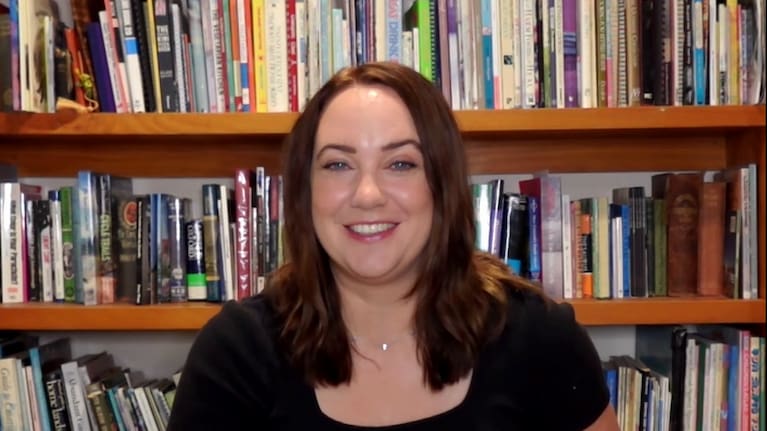Wellbeing concepts like mindfulness may seem incongruous with cold hard cash. But if you really want to reach your financial goals, a little 'woo' could help you get there, writes Frances Cook.
If life were as simple as following through on the things we know we need to do, it would be a lot easier.
Unfortunately, that’s simply not how it goes in almost any area of life, especially our money. Our brains simply aren’t wired for it. Acknowledging that, and working with our wiring instead of against it, can be the key to actually hitting those goals.
Here are the “woo but true” techniques that can be easy to dismiss, but are actually backed by science.
1. Visualising your future self will boost your savings
Want to start thinking long-term? Imagining your future self, as vividly as possible, makes you more likely to make good financial decisions.
One study even used immersive virtual reality to let participants interact with an age-progressed version of themselves. As in, an avatar of themselves but looking older.
Afterwards the people who took part in the study were more likely to avoid impulse spending, and save for retirement instead.
Why? Because the idea of getting older and wanting a good life in their golden years was now more real to them. So they were willing to do what was needed to look after their future self.
This is something known as "future self-continuity," which suggests that when we feel a strong connection to our future selves, we're more motivated to make decisions that benefit us in the long term.

2. Name those goals
I talk endlessly about naming savings accounts, and putting up pictures of your financial goals.
Why? Because this is a tactic based in behavioural economics, called mental accounting. You mentally separate your money into different accounts, or categories, based on what you’re wanting to achieve.
It’s particularly powerful for your savings.
When you label savings accounts to have specific goals, such as "Beach House Fund" or "Emergency Savings," you create a stronger emotional attachment to the goal. If you go to break into the savings, you’re confronted with the goal you want to achieve, and that’s often enough to make you pause, and decide it’s not worth it.
Every trick counts, when you’re trying to resist impulse spending.
3. Practise financial mindfulness
This tip probably sounds the most woo of the lot, but financial mindfulness just means being present and aware of your financial decisions.
You’re aiming to recognise emotional triggers, and make intentional choices.
You can support this with things like financial check-ins, mindful pauses of a day or a week before purchases, and having gratitude for your current financial situation.
There is masses of research on how this leads to concrete improved financial results. A 2023 study, for example, found that people who practiced financial mindfulness experienced better credit scores and more rational investment choices.
So it’s woo… but true.

4. Small consistent habits are key
If you want to actually stick with your savings goals, you need to break them down into smaller goals, on a manageable time frame.
Focusing on a weekly or monthly goal is far more likely to succeed than a five-year goal.
Of course, the five-year goal is important. But you need to break down the steps to get there, and make them feel as immediate as possible.
Our brains evolved at a time when we needed to grab opportunities as they presented themselves, and tomorrow wasn’t guaranteed.
So if you’re wanting to think long-term, find a way to make it short-term, then take that first step immediately.

5. Get positive
Being more optimistic is strongly linked to better financial behaviour, including what we’ve already been talking about, such as goal setting and long-term savings.
Why? Because a positive outlook encourages you to do all of annoying but useful stuff that actually works.
You’re more likely to imagine a successful financial future, and that keeps you motivated to take the steps needed to achieve your goals.
And while you might say, well that’s all good for all those rich people to do positive thinking, the rest of us have to deal with reality, it’s actually even more powerful for people on lower incomes.
I'm not saying you need to just positive think your way out of a pickle.
But positive thinking has been found to actually increase resilience, which you really need when times get tough, and it also encourages people to get proactive and take action towards their financial goals.
Breakfast speaks with independent financial journalist Frances Cook. (Source: Breakfast)
Structural problems are real, we all start at different places, some of us have it way harder than other people. But it is also true that unfortunately, the world is not fair, and nobody is coming to save you.
Even when we need help and a community approach to fixing a problem, you often have to go out there and find the help yourself, and then do your part within getting that help.
Having an optimistic outlook, and positive frame of mind, helps you stay mentally strong to do the hard work that is required when you’re in that sort of situation.
Bottom line?
Get onto that moodboard. Go ahead, print the picture of the house. Stick the name of the country you want to visit, on the fridge.
Put these reminders somewhere you’ll see them. It’s not magic. It’s neuroscience.
The information in this article is general in nature and should not be read as personalised financial advice.



















SHARE ME